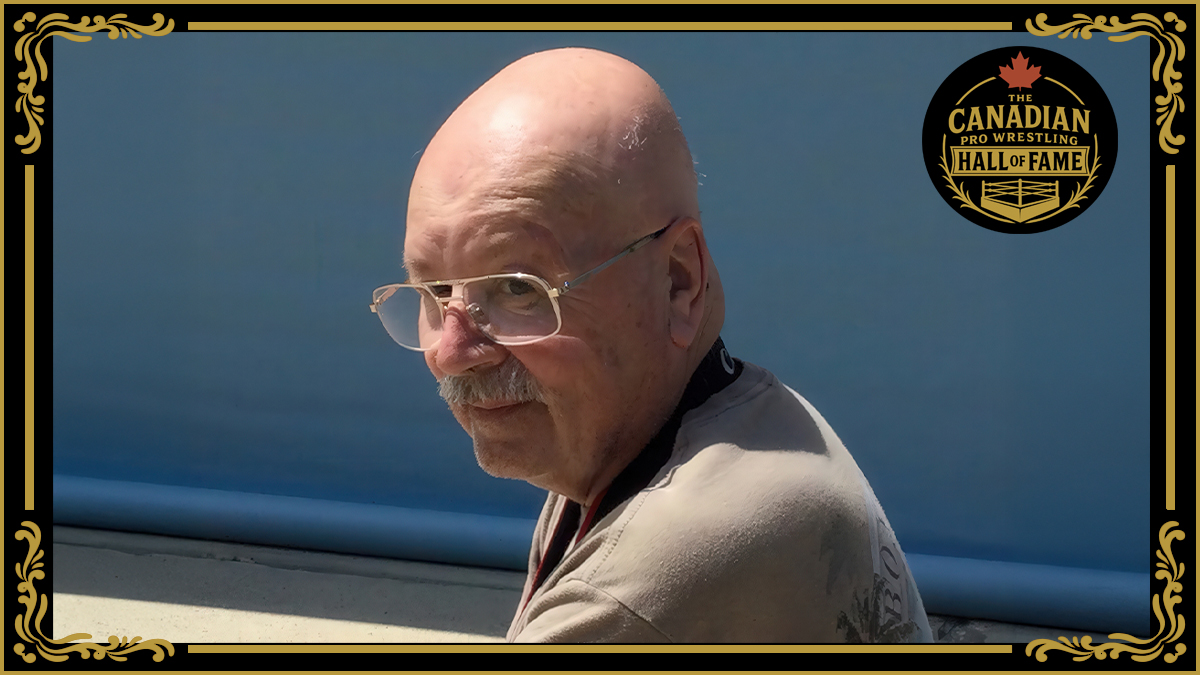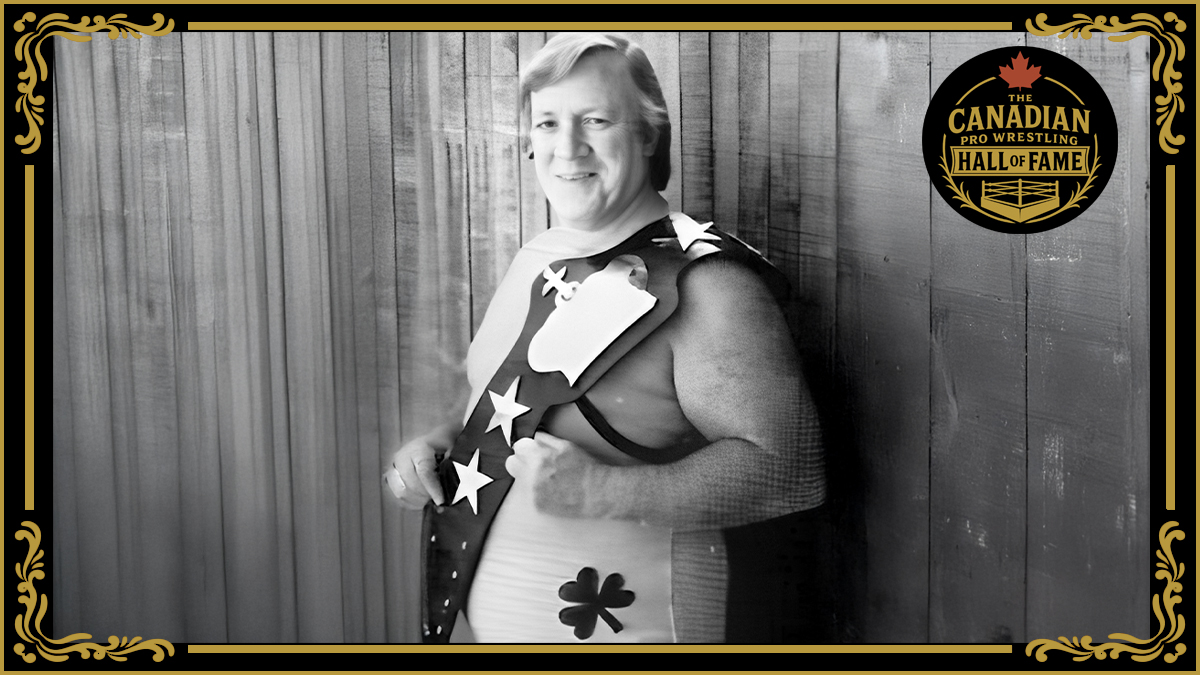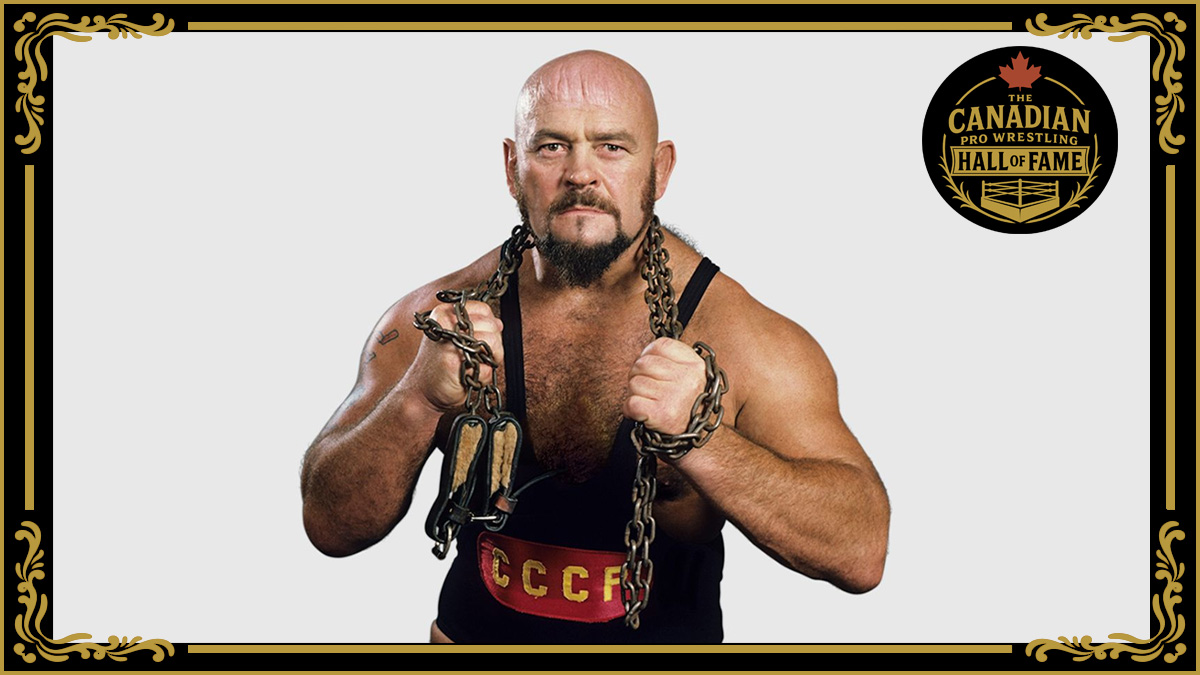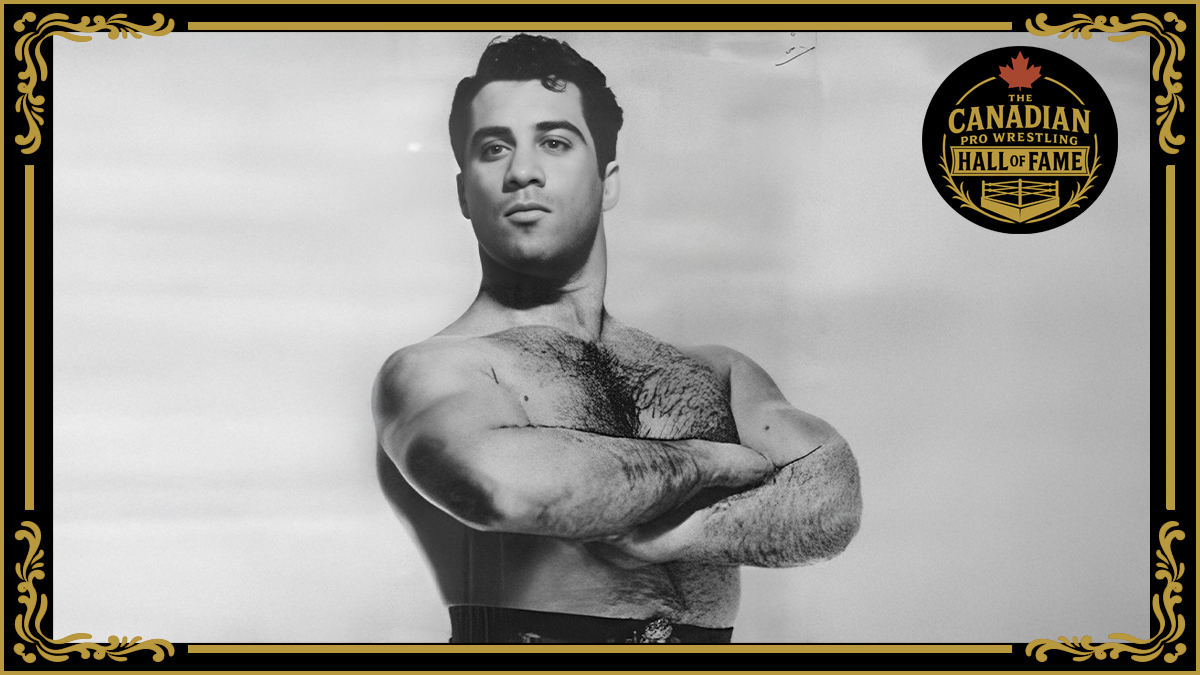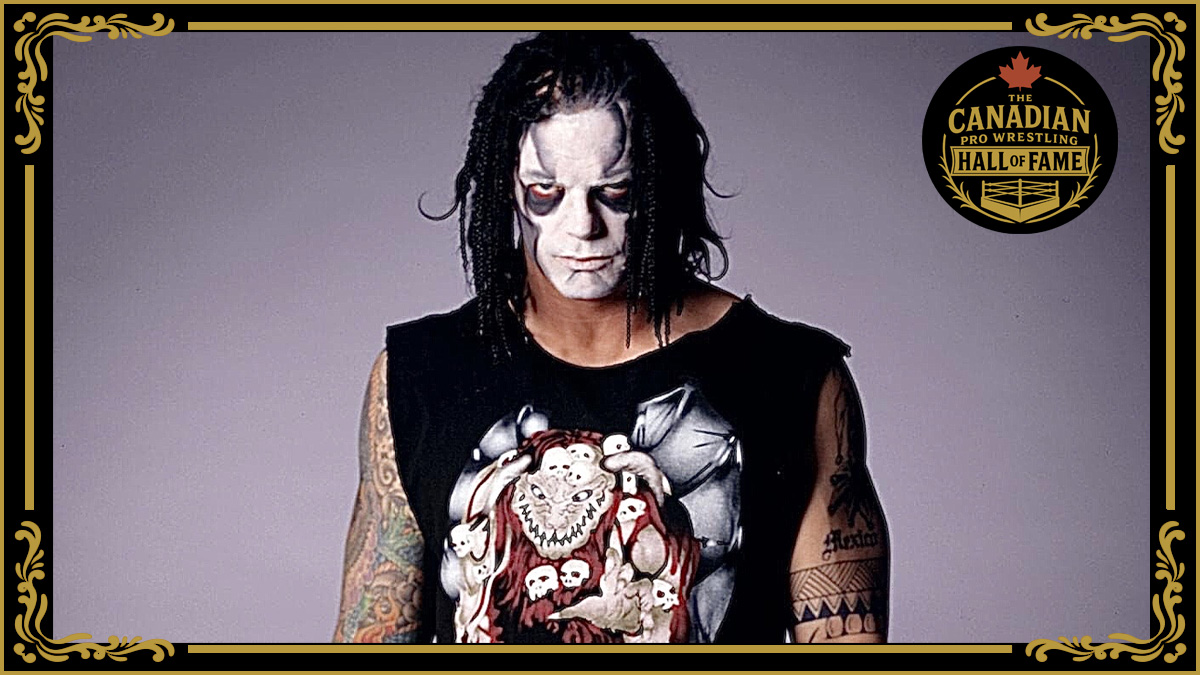Terry Machalek Sr., who has died at the age of 76, was one of the greatest champions in promoting Canadian professional wrestling, ever.
Whether he was writing letters to the editor complaining about wrestling coverage in his native Winnipeg, shooting posed photos and at ringside, publishing his newsletters, or just offering advice, Machalek was a key part of the Canadian scene for decades.
For many, his Gettin’ Results and the subsequent award-winning Canadian Championship Wrestling newsletters were must-haves. Machalek cultivated a rich collection of contributors — many whom stayed friends for years — and laid out all the newspaper clippings and stories in a readable and fun way. The results were from all over the globe, and he sorted them out for readers … but his opening letters were often the highlight of CCW where he talked about his adventures shooting ringside for the American Wrestling Association or gave his opinions about the wrestling scene. CCW ceased publication in 1998, and had been very infrequent for the last years, as Machalek’s continually apologized for the delays. “It was the GOLD standard back then as each issue was gigantic,” wrote Wes Maidment on Facebook in April 2022.
At a time when the wrestling community was tight-knit and corresponded through the mail, only getting together occasionally for fan-run conventions, Machalek was a celebrated name. His awards include:
- W.F.I.A. (Wrestling Fans International Association) Professional Photographer of the Year – Convention in Kansas City, Missouri – August 7-10, 1985
- W.F.I.A. Best Fan Club Publication (General) – Convention in Birmingham, Alabama – August 6-10, 1987
- W.F.I.A. Best Fan Club Publication (Results) – Convention in Birmingham, Alabama – August 6-10, 1987
Terrance R. Machalek Sr. was born September 5, 1946, in Winnipeg. He ended up at the University of Manitoba, and was an amateur wrestler.
But pro wrestling had a hold on him too, and he attended matches with his friends, and watched the national broadcasts of wrestling from Maple Leaf Gardens.
“I liked wrestling so much that when I started taking pictures, it was just for my own use,” he told the Selkirk Journal‘s Amanda Bosma in a feature in 2000.
But he wanted to know more, and got nosy.
“There was this wrestler, Dr. X, that used to always wear a mask. One time, his mask came off and his promoter had to lead him off the ring with a towel on his head. Well, I raced up to him, jumped on his back and started yanking on the towel. The promoter said, ‘Terry just let go of the towel and we’ll let you take pictures for us’ and so I did.”
That promoter was Al Tomko, who ran the AWA-related shows in the province of Manitoba.
After Tomko’s death in 2010, Machalek wrote a piece for SlamWrestling.net about his entry into the business.
“I first met Al Tomko when I was a ‘mark.’ I, along with my two buddies, Allen French and Dave Greenaway, would attend the matches at the old Civic Auditorium in Winnipeg. I was working for the U.S. Consulate General at the time in Immigration and Visa Control. Since there were a lot of Canadian wrestlers at the time who wanted to work in the U.S. legally, Al would send them down to see me for advice. And he graciously let me take photos of the wrestlers and wrestling matches for my personal use,” wrote Machalek.
That relationship would grow. Machalek sold programs for Tomko, originally at the Auditorium and then the bigger Winnipeg Arena. “I spent a lot of time on the road in Manitoba with Al when he promoted the rural areas. And I learned a lot about the business from him. Mainly, don’t turn your back to anyone because you’ll get screwed every time, even by those you trust,” wrote Machalek.
When Machalek lost his job at the U.S. Consulate General, Tomko “gave me side jobs which put extra money in my pocket to support my family. With him, family was very important.” Following that job, Machalek worked for the Canadian Pacific Railway (CPR) for over 30 years.
Like Tomko, family was important to Machalek. He met his future wife, Willie, when he worked at the US Consulate. They were married December 15, 1973, and it was an early example of the multicultural evolution of Winnipeg in the 1970s, between a local man and a Pilipino immigrant. She worked as a nurse’s aide at Health Sciences Centre Winnipeg. He and Willie had two children, Natasha and Terry Machalek Jr.
Natasha Machalek-Holmes noted that for many of those years, her father was a carman with CPR, “a job that was hard on his body and soul. But it put a roof over our heads and food on the table. He was a staunch union man all his life. He had several roles throughout the years in his union. Union steward was a good one, but there was one I can’t remember the name of, but it seemed like ‘union enforcer’ of meetings.”
Tomko also allowed Machalek to be a manager for a short while, first encouraging Terry to bulk up his small 5-foot-5 frame. It was a brief stint as a manager, and his only charge was The Zodiac — Tomko under a mask.
Jumping ahead, Tomko bought into the promotion in Vancouver, leaving Winnipeg behind … and leaving crates of goodies in Machalek’s basement — AWA iron-ons and T-shirts, photos buttons, programs. (Of course, many of the photos and buttons were actually Machalek’s work.)
But there were countless trips to Stampede Wrestling shows throughout Western Canada too and oodles of indy shows through the years.
It is almost certain you have seen some of his photos, like early shots of Ric Flair and especially the rookie shot of a pre-Rowdy Roddy Piper.
He was also in just about every wrestling magazine. Machalek’s shots stood out because he’d work his way into a unique position for the shot. “Back when I started, most of the photographers took pictures from outside the ropes so there’d always be ropes across all the wrestlers’ pictures. I didn’t want that so I would crawl underneath the ropes to take my pictures,” he told the Selkirk paper.
He walked a fine line between fan and someone involved in the business. In January 1974, he wrote a passionate letter to the Winnipeg Free Press, advocating for more wrestling coverage (and years later, the Freep would use some of his photos). The letter to the sport editor reprinted below:
Dear Sir:
I find it very disappointing when, after a wrestling match in Winnipeg, I have to scour the sports pages to find the wrestling results. Occasionally, you will do a decent spread on wrestling but this is very rare. The only time I have seen decent, if you can call it that, results or coverage is when an ex-football player such as Angelo Mosca is featured. Your coverage is atrocious as you frequently misspell the names of the wrestlers and the results of the matches. Also, you do not include how the match was won, example: Boston crab, suplex, sleeper, etc.
Up until recently I have wondered about the scantiness of information on wrestling published in your paper. But now, no more, as Ray Stevens, one half of the A.W.A. Tag Team Champions, mentioned this subject in an interview. He said, “How is it that wrestling became the whipping boy of professional sports? I can tell you part of it. Most sportswriters get taken out and wined and dined by professional teams. A big football team can take good care of a sportswriter. They can send him all over the country at tremendous expense. Naturally, they give good coverage to football. Wrestlers can’t do this because we’re individuals.” He also said, “People have the idea that someone tells you to go out and win tonight, and so and so will win tomorrow night. Wrestling is just as legitimate as any professional sport.”
I have to agree with him wholeheartedly as I know for a fact that a large binder is kept in Minneapolis on each and every match that a wrestler takes part in and the results of these matches. If a wrestler loses too many matches he is automatically dropped in the ratings, which means a cut in his earnings, and which also means he has to win more matches to work his way up again. No decent wrestler will settle for second best when he is capable of being the best.
Lastly wrestling is on the increase in popularity in North America as witnessed with the 11,000 plus fans attending last Thursday’s bouts. Wrestling fever is sweeping the country, so get with it before it gets you.
Yours truly,
Terrance R. Machalek
Although largely identified with the AWA for his legendary photos of the big stars like the High Flyers (Greg Gagne and Jim Brunzell), The Heenan Family, Andre The Giant and Hulk Hogan, Machalek was a big supporter of Manitoba-based wrestling as well.
A few years after the start of the outlaw New Brand Wrestling promotion, big-time stars like Lars Anderson and Dean Higuchi started getting booked to headline. Machalek would sneak out of his shift at the railyard for a few hours and head over to the Chalmers Community Centre to capture the action.
“He was a quiet, happy soul who just wanted to take pictures of wrestling,” said New Brand promoter Walter Shefchyk, who wrestled as The Canadian Superstar. “There was no politics with him, all he wanted to do was take pictures. He had no allegiances that I could tell. He just worked for the railroad and loved the wrestling business.”
New Brand folded in 1984 and the AWA left Winnipeg in January 1986. Taking the initiative, Machalek took the earliest promo pics of the next wave of Manitoba grapplers who hit the road and plied their trade across the continent and overseas. From “Evil” Eddie Watts and “Playboy” Doug McColl to Chi Chi Cruz and Rick “Leatherface” Patterson, he gave his time to help an entire generation further their careers.
“He was brutally honest with us,” said New Brand alum Marty Goldstein, still active in the wrestling scene 40 years later. “He told us that out of a roll of 36 shots, if we got four that were genuinely good enough for him to to print into 8x10s for us to send to promoters, we would be lucky. He was right.” Goldstein added the Machalek did everything he could to help the local wrestlers he knew get booked, and found ways to mention them in his Canadian Championship Wrestling newsletter, often with a promo shot that he took.
Natasha was a part of wrestling from when she was a baby. “I’ve been in wrestling for 25 years,” she joked with the Winnipeg Sun‘s Doug Lunney in 2000 — when she was 25. “I started selling pictures when I was five in the old AWA at Winnipeg Arena. I toured around a lot and was always around the wrestlers.”
Goldstein hosted them. “In the late ’80s, he’d bring Natalie and Terrance Jr. along to the shoots because we had a swimming pool, and the kids would play and have a great time while he took our photos. To this day they are like family to me. His in-laws owned Lisi’s Ranch House and he’d get them to open for us to watch pay-per-views like AWA Super Clash 3. Terry certainly had strong opinions about what he liked and who he liked.”
As Natasha aged, she had lots of protectors, all of whom knew her father. When she was old enough, Natasha worked as a ring announcer for the CWF promotion, and then as a manager named Vixen, then was known as Mistress Mona Lott, who wrestled a handful of matches too, and was a second to Jeff Wallace.
When the promoting bug bit Goldstein in 1989, Machalek was very supportive. “Terry encouraged me to run and told me to come over to his place which at the time, was on the outskirts of the city. He took me to his basement and gave me all sorts of AWA iron-ons, promo shots and buttons to sell on our tour to generate revenue — and didn’t ask for a dime for the inventory. I never, ever forgot that,” said Goldstein. “He was an old-fashioned, honorable guy. In the last 10 or so years he started coming around the local shows, especially Canadian Wrestling’s Elite cards, and it was great seeing him and helping him line up shots of the boys.”
CWE owner Danny Warren was especially appreciative of Terry’s efforts. “He’d come out to all sorts of our venues, pay his respects in the locker room, take fantastic photos of our shows, and never asked for anything in return,” said Warren, who wrestles as Danny Duggan. “He was such an important part of the Winnipeg wrestling community.”
Community for Machalek was about far more than wrestling. In 2007, he received an award from Manitoba Lt. Gov. John Harvard for his work as a Peer Leader / Volunteer. He was a passionate union man as a shop steward, was involved with the College of Registered Nurses of Manitoba, and his community service included being a board member of Klinic, a leading health services agency in the city’s core area. In the last few years he served as Events Co-ordinator for Canadian Pacific Pensioners, and his appearances at the Credit Union AGMs kept officials on their toes. In 2004, he was recognized by his gay-lesbian rights activism by the the C.A.W. Training Facility in Port Elgin, Ontario.
In 2012, Terry and Willie made it to the Cauliflower Alley Club reunion in Las Vegas for the first time, reuniting with so many wrestlers, promoters, fans and subscribers. It was one of many trips that he and Willie made together, seeing the world — and returning to the CAC.
Machalek fought a private battle against cancer, and was hospitalized in March 2023, and died on March, 5, 2023, back at Health Sciences Centre, where he had first gotten to know Willie.
Terrance Machalek Sr. is survived by his wife, Willie, son Terrance Jr., his wife Gillian, daughter Natasha, and grandchildren Jayde, Alex, and Zoe.
ADDENDUM: The service for Terrance R. Machalek will be at Glen Eden Funeral Home at 4477 Main Street West, in Winnipeg on Saturday, March 18 at 2 p.m., with a reception afterwards.
